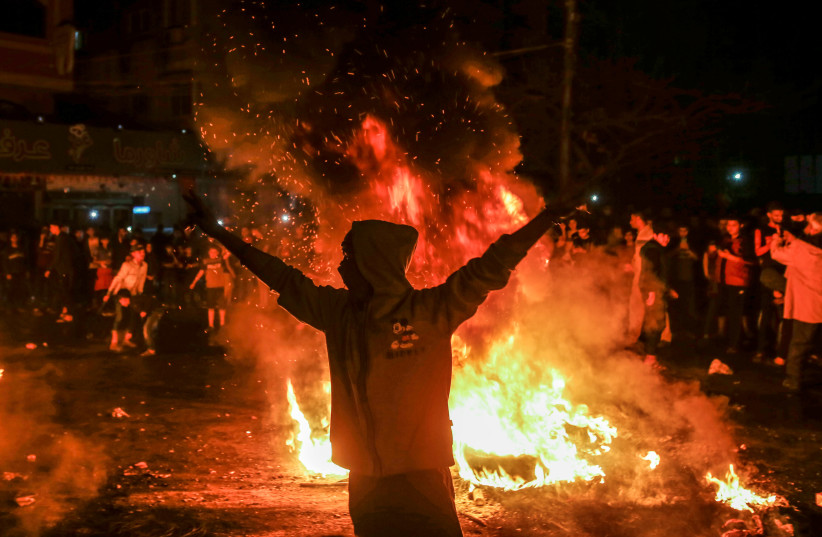 [JPost] Here are four key factors that have contributed to the violence: Ramadan, Palestinian elections, Israeli politics, and Iran.
[JPost] Here are four key factors that have contributed to the violence: Ramadan, Palestinian elections, Israeli politics, and Iran.After enjoying one of the most peaceful years in Israel's history, many were caught by surprise by the recent nightly violence in Jerusalem and dozens of rockets fired from the Gaza Strip over the weekend.
But nobody should have been surprised. A number of factors have come together to trigger the tension and the violence, and had more attention been paid to these factors — rather than to the country’s unending political maneuvering — it would have been possible to see the writing on the wall.
Here are four key factors that have contributed to the violence.
RAMADAN
Ramadan, which began on April 12 and is expected to end on May 12, has historically been a time of increased violence and terror in Jerusalem and around the country.
Datagraver, a Dutch project that "harvests and scrapes data from various online government pages and databases to create figures and dashboards," produced a report in 2016 saying that in the years 2006-2015 there was not a correlation globally between terror attacks and Ramadan.
But, the report read, there is a significant variation on this per country. "In Bangladesh, Iran and Lebanon the number of attacks during Ramadan is over 50% lower than during non-Ramadan days. In Israel it's over 200% higher."
A look at recent history in Israel bears this out.
In 2015, following the fatal shooting of Malachi Rosenfeld on June 29 near Shilo, then ambassador to the UN Ron Prosor wrote a letter to the UN Security Council saying that "in the two weeks since the beginning of Ramadan ... there has been a dramatic increase in attacks against Israelis. Each day seems to bring with it news of a shooting attack, or a stabbing. Just yesterday, a terrorist stabbed a 19-year old female soldier next to Rachel’s Tomb, causing severe injuries."
The following year, six Israelis were killed during the month of Ramadan. The IDF spokesman’s office said this of that period: "Ramadan is supposed to be a time of peace. Instead, terrorists and extremists have exploited this holy month to end a period of relative calm in the nine-month wave of terror. Six innocent civilians were murdered in three terror attacks over the course of the holiday, and many more were wounded."
In 2017 Border Police officer Hadas Malka was stabbed to death by a Palestinian terrorist at the Damascus Gate.
In 2019, The Foreign Ministry reported that in May of that year, the month in which Ramadan fell, there was "a dramatic increase in the number of terrorist attacks, compared to April: 449, as opposed to 126. Out of these 449 attacks, 362 were instances of rocket fire from the Gaza Strip."
And in 2020, one of the three Israelis killed in terror attacks that year, St. Sgt, Amit Ben Yigal, was killed during Ramadan.
It is no secret, therefore, that there is generally an uptick in violence here during Ramadan. This was compounded this year with Israel entering a post-corona period, and — for the first time in a year — more and more people gathering, including more possible points of friction between Arabs and Jews.
RTWT